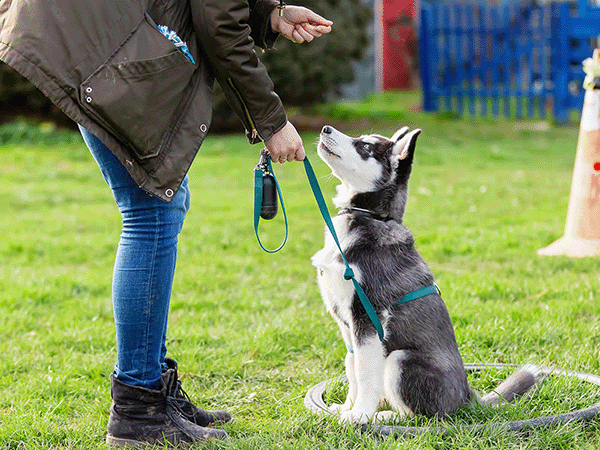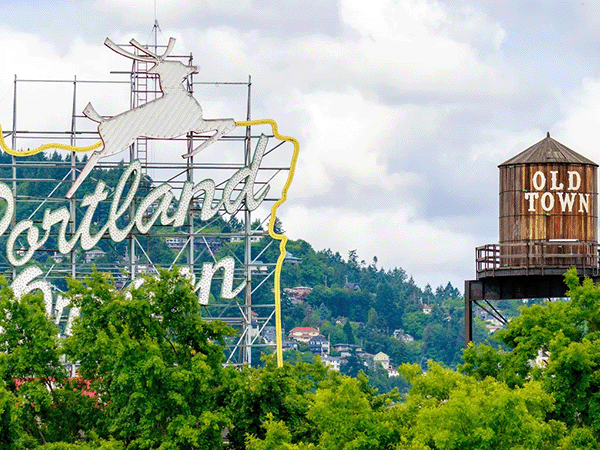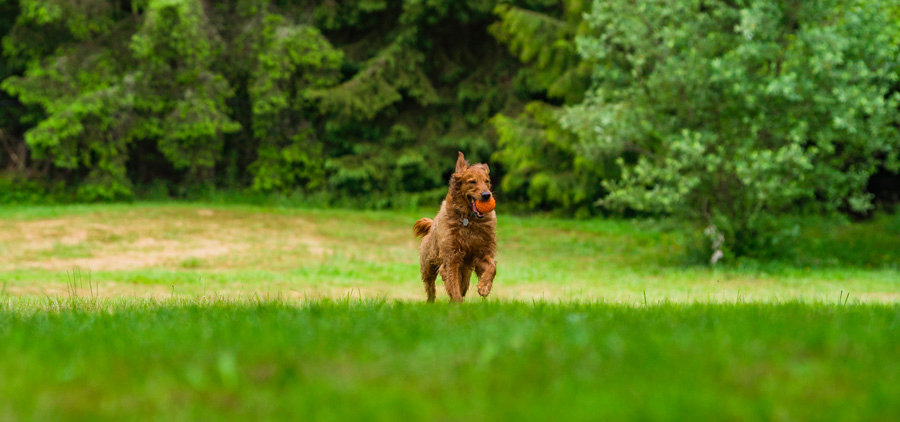Boston Terrier Guide: Temperament, Training & Care

Discover the Boston Terrier, a breed celebrated for its playful, friendly, and intelligent nature. Recognized as a small dog, Boston Terriers are originally from the United States, where they were bred for fighting starting in the late 19th century. Today, Boston Terriers are popular companion dogs, beloved by their owners for their compact appearance and playful personalities.
In this post, we share insights from nearly 100 Sniffspot Boston Terrier owners, offering practical advice for new and prospective Boston Terrier owners. Whether you’re considering adopting or rescuing a Boston Terrier or already have one, you’ll find valuable tips on how to care for and enjoy life with a playful Boston Terrier.
Thinking about adding a Boston Terrier to your family? These "American Gentlemen" charm everyone with their playful energy and distinctive tuxedo markings. But before you're completely smitten, let's explore this breed's quirks, care, and potential health needs. We'll cover everything—from their surprising history (were they really bred for fighting?) to their exercise needs and those adorable snorts (don't worry, it's a harmless "reverse sneeze"). We've gathered insights from nearly 100 real Boston Terrier owners on Sniffspot, so you'll get the inside scoop on Boston Terriers.

Source: Sniffspot Community Breed Survey 2024
Boston Terrier: At a Glance
- Breed Type: Non-sporting
- Size: Small
- Life Expectancy: 11 to 13
- Healthy Weight Range: 12 to 25
- Height Range: 15 to 17
- Temperament: Playful, Friendly, Intelligent
- Coat Type: Short, smooth coat
- Color: Brindle, seal, black, often with white markings
Getting to Know the Boston Terrier
According to nearly 10,000 Sniffspot community users who shared real-world data about their Boston Terrier, we learned that these dogs are playful and friendly. The Boston Terrier is also known to be very friendly and social with children and very friendly with other pets.
When living with a Boston Terrier, 58% of our owners indicated that a large house with a fenced yard is ideal. Additionally, 37% of owners found that a climate-controlled environment due to breed sensitivity is also acceptable. This dog is moderately trainable, often benefiting from a professional trainer and owners say that the Boston Terrier learns best with positive reinforcement, consistent routines, and socialization.
In terms of exercise, 51% of Sniffspot owners say their Boston Terrier benefits from moderate exercise every day, including between 1-2 hours of activity each day, including walks and active play sessions. The Sniffspot Boston Terrier community would recommend this dog for first-time owners.
What Were Boston Terriers Bred For?
Although their ancestors were strong fighters and fierce hunters, Boston Terriers were bred for a surprisingly different purpose. In the late 19th century, these dogs were initially bred for pit fighting in Boston, Massachusetts. Breeders crossed English Bulldogs with now-extinct white English Terriers, aiming to create a new breed. This led to the creation of the Boston Terrier, a smaller, more agile dog built for the fighting pit.
However, as the sport declined and attitudes towards animal welfare changed, the focus of Boston Terrier breeding shifted dramatically. Breeders began to prioritize temperament and companionship over aggression. With so much focus on reforming the breed's original fighting purpose, the early years of the Boston Terrier's integration into the U.S.A. were solely focused on transforming the breed. By the time the breed was recognized by the American Kennel Club in 1893, the name Boston Terrier had been settled on, reflecting the breed's American roots. Over time, they evolved into the friendly, playful companions we know and love today. Today’s Boston Terriers are popular companion dogs, treasured by their owners for their compact appearance and playful personalities. If you're looking for the perfect space for your Boston Terrier to play and socialize, check out the dog parks available on Sniffspot!
Key Takeaways
- Boston Terriers are adaptable companions: They thrive in different living situations, from apartments to houses with yards, as long as temperature extremes are avoided. Their friendly nature makes them suitable for families with children and other pets.
- Training requires patience and consistency: Boston Terriers respond best to positive reinforcement and clear routines. Early socialization is key for a well-adjusted adult. Professional training can be beneficial, especially for first-time owners.
- Proactive health management is important: Be aware of common health issues like breathing problems, eye conditions, and skin sensitivities. Regular veterinary care and considering pet insurance can help you provide the best possible care for your Boston Terrier.
History of the Boston Terrier
The Boston Terrier, affectionately known as “The American Gentleman” due to its tuxedo-like markings, was developed in the United States in the late 19th century. The breed’s origins trace back to a cross between an English Bulldog and a white English Terrier. Initially, Boston Terriers were larger and used for fighting and ratting, but over time, breeders refined the breed to be smaller and more suitable as companion dogs.
By the early 20th century, the Boston Terrier had evolved into a friendly, sociable breed, far removed from its fighting roots. The breed quickly gained popularity due to its compact size, affectionate personality, and tuxedo-like coat. In 1893, the American Kennel Club officially recognized the Boston Terrier, making it one of the first non-sporting breeds developed in the U.S. to gain such recognition.
Today, Boston Terriers are cherished for their playful, lively nature and strong attachment to their families. Their adaptability makes them a popular choice for city dwellers and those looking for a small, well-mannered companion. Though they may be prone to stubbornness, their affectionate nature and intelligence make them a beloved breed worldwide.
Evolution into a Companion Animal
The Boston Terrier's journey from a fighting breed to a beloved companion is a remarkable transformation. Originally bred in the late 19th century from a cross between an English Bulldog and a white English Terrier, these dogs were initially larger and utilized for fighting and ratting. However, as breeders recognized the breed's potential as a companion, they began to refine its characteristics, resulting in a smaller, more sociable dog better suited for family life. This careful selection for temperament and size is a key part of what makes them such wonderful companions today.
By the early 20th century, the Boston Terrier had evolved significantly, shedding its aggressive roots to become the friendly and sociable breed we know and love. This shift in purpose reflects changing societal values and the breed’s adaptability and charm. The Boston Terrier quickly gained popularity, celebrated for its compact size, affectionate personality, and distinctive tuxedo-like coat. In 1893, the American Kennel Club officially recognized the breed, marking it as one of the first non-sporting breeds developed in the United States.
Today, Boston Terriers are cherished for their playful and lively nature, forming strong attachments to their families. Their adaptability makes them an ideal choice for city dwellers and those seeking a small, well-mannered companion. If you're looking for places for your Boston Terrier to play and socialize, check out our listings of dog parks! While they may exhibit a touch of stubbornness, their intelligence and affectionate demeanor make them a beloved breed worldwide. For training tips and resources, take a look at our list of top dog trainers.
Boston Terrier Traits and Quirks
- Temperament: Playful, Friendly, Intelligent
- Energy Level: Moderate
- Trainability: Moderately trainable – Learns commands with consistent training and practice.
- Grooming needs: Low maintenance – Requires minimal grooming, such as occasional brushing and baths.
- Good with Kids: Very friendly and social with children
- Good with Other Pets: Very friendly with other pets
Temperament Deep Dive
Boston Terriers are truly delightful companions known for their friendly and eager-to-please nature. They thrive on family interaction and enjoy being involved in all the household happenings. This breed generally gets along well with children, especially when socialized from a young age. Boston Terriers can also coexist peacefully with other pets with proper introductions and training. Their playful and affectionate personalities make them a joy to be around. Their intelligence makes them receptive to training, although a bit of stubbornness can sometimes shine through. Overall, Boston Terriers are adaptable and happy dogs who bring a lot of love and laughter to their families.
The "Reverse Sneeze"
If you're a Boston Terrier owner, you might have witnessed your furry friend experiencing what's often called a "reverse sneeze." It sounds a bit alarming—like a snorting or honking sound—but it's typically not a cause for concern. This quirky behavior happens when a dog's soft palate gets irritated, and they try to clear it by quickly inhaling air. While it can seem dramatic, the reverse sneeze is usually harmless and resolves on its own within a few seconds. However, if you notice your Boston Terrier experiencing reverse sneezes frequently or for extended periods, it's always a good idea to check in with your veterinarian to rule out any underlying issues.
Size and Weight Variations
While Boston Terriers are classified as a small breed, there can be some variation in their size and weight. They typically range from 9 to 15 inches tall and weigh between 6 and 25 pounds. This compact size makes them well-suited for apartment living and easy to travel with. Whether your Boston Terrier is on the smaller or larger end of the spectrum, their playful personality and affectionate nature remain consistent, making them wonderful companions regardless of their exact measurements. If you’re looking for a safe space for your Boston Terrier to play and socialize with other dogs, Sniffspot offers a variety of private dog parks perfect for all breeds and sizes.
Boston Terrier Ownership: What to Expect
As a Boston Terrier owner, it’s important to know the best dog breed tips and what to expect from current Boston Terrier owners.

Source: Sniffspot Community Breed Research 2024
Grooming Your Boston Terrier
Boston Terrier dogs require low-maintenance grooming. This means Boston Terrier owners should expect minimal grooming, like occasional brushing and baths. Boston Terrier dogs have a short, smooth coat coat, which is ideal for protection. Their short, smooth coat coat is considered low shed.
To keep your Boston Terrier’s coat healthy and up to breed standards, brush weekly to remove loose hair. Of the coat types for breeds in the non-sporting group, the grooming needs for Boston Terriers are considered to be low maintenance.
Detailed Grooming Practices
Boston Terriers are famously low-maintenance when it comes to grooming, making them a great choice for first-time dog owners. Their short, smooth coats require minimal upkeep—just an occasional brushing and bath. As the Sniffspot community confirms, “Boston Terrier dogs require low-maintenance grooming,” which frees up more time for playing fetch at a Sniffspot dog park or cuddling on the couch.
For a healthy, shiny coat, a weekly brushing is recommended. This helps remove loose hair and keeps shedding around your home to a minimum. Sniffspot's research also highlights this easy-care coat: “Of the coat types for breeds in the non-sporting group, the grooming needs for Boston Terriers are considered to be low maintenance.” This makes them especially well-suited to people who don’t have a lot of time for—or interest in—extensive grooming routines.
Beyond brushing, Boston Terriers benefit from occasional baths. How often really depends on your dog’s lifestyle and how dirty they get. If your Boston Terrier loves splashing in puddles or rolling in the grass, they'll likely need more frequent baths. Between baths, you can use a damp cloth to wipe down their paws and face to keep them clean. For more tips on dog enrichment and training, browse the Sniffspot blog. And if you're looking for the perfect Boston Terrier name, check out our list of dog names.
Exercise Essentials for Boston Terriers
Boston Terriers require moderate activity each day. Though one of the most popular dog breeds, Boston Terriers are considered a very athletic, high-energy breed. Boston Terriers make great pets and thrive with between 1-2 hours of activity each day, including walks and active play sessions. Owners of Boston Terriers report their dogs especially love tug-of-war, chasing/playing with a ball or frisbee, and playing with squeaky toys.
When small breeds like Boston Terriers don’t get sufficient exercise, they’re more likely to act out with undesirable behaviors like stubbornness and separation anxiety. They need consistent training, mental activity, and regular moderate exercise to avoid their negative behaviors.
Feeding Your Boston Terrier
What should you feed your Boston Terrier to keep them healthy? As a moderate energy breed, what you feed them is important. A reported 60% of our community feeds their Boston Terrier commercial dry kibble.
With moderate exercise, Boston Terriers should eat 1 to 1.5 cups of vet-recommended food to maintain a healthy weight of around 12 to 25 lbs. However, your Boston Terrier’s ideal weight and food depend on your pet’s sex, activity level, and age.
Dietary Recommendations for a Healthy Boston Terrier
Feeding your Boston Terrier a balanced diet is crucial for maintaining their health and energy levels. As a moderately active breed, the type of food you choose plays a significant role in their overall well-being. According to insights from the Sniffspot community, approximately 60% of Boston Terrier owners feed their dogs commercial dry kibble. Kibble is often recommended for its convenience and nutritional balance. For those new to the world of dog food, kibble typically contains a mix of meat, grains, and vegetables, formed into small, bite-sized pieces.
To ensure your Boston Terrier remains healthy, it’s a good idea to provide them with 1 to 1.5 cups of vet-recommended food daily. This amount can help maintain their ideal weight, which typically ranges from 12 to 25 pounds. However, each dog is different! Specific dietary needs will vary based on factors like your dog’s sex, activity level, and age. Regular checkups with your veterinarian can help tailor a diet that best suits your Boston Terrier’s individual needs. If you're looking for recommendations for qualified dog trainers in your area (who often have great advice on diet and nutrition as well), check out Sniffspot's directory.
Remember, a well-balanced diet, appropriate portion sizes, and regular veterinary guidance are essential for keeping your Boston Terrier healthy and happy. You can find more resources and connect with other Boston Terrier owners through the Sniffspot community.
Boston Terrier Health: What to Watch For
The Boston Terrier breed is most prone to skin conditions (e.g., allergies, dermatitis) and eye conditions (e.g., cataracts, glaucoma). A reported 35% of our Boston Terrier owners reported skin conditions like allergies, yeast infections, impetigo, ringworm, alopecia, and folliculitis. Boston Terrier’s risk for these challenges increases as they age.
Similarly, 28% reported eye conditions like cataracts, glaucoma, conjunctivitis, or corneal ulcers. Lastly, 26% of Boston Terrier owners claim their dog struggles with respiratory issues like chronic cough, tracheal collapse, pneumonia, brachycephalic syndrome, or respiratory tract infections — a common Boston Terrier health concern. If you’re worried about any of these health issues above, talk to your Boston Terrier’s vet.
Brachycephalic Syndrome: Understanding the Risks
Because Boston Terriers are brachycephalic (short-nosed) dogs, they can be prone to breathing difficulties. These problems often stem from narrowed nostrils and elongated soft palates, which obstruct airflow. Common signs of brachycephalic syndrome include snoring, noisy breathing, overheating, and reduced exercise tolerance. If your Boston Terrier struggles to breathe, especially during exercise or hot weather, consult your veterinarian. Maintaining a healthy weight can significantly lessen these symptoms, and in severe cases, surgery may be necessary.
Patellar Luxation (Slipping Kneecaps)
Patellar luxation, or slipping kneecaps, is another common issue for Boston Terriers. This occurs when the kneecap dislocates from its normal position. Signs include limping, a bowlegged stance, and clicking sounds in the knee. While weight management and joint supplements can help milder cases, surgery might be necessary for more severe instances. Regular vet checkups can help identify and manage this condition early.
Eye Problems in Boston Terriers
Those prominent Boston Terrier eyes, while adorable, can be prone to problems. These include glaucoma, cataracts, dry eye, and corneal ulcers. Regular veterinary checkups are crucial for early detection and treatment. If you notice changes like redness, cloudiness, excessive tearing, or squinting, contact your vet right away.
Other Health Concerns
Boston Terriers can also experience skin issues like allergies and dermatitis. Sniffspot's community data shows 35% of owners report skin problems such as yeast infections and ringworm. Additionally, 26% note respiratory issues, often related to their brachycephalic conformation, including chronic cough. Knowing these potential issues helps you be proactive in your dog's care.
Lifespan and Longevity
With proper care, Boston Terriers typically live 11 to 13 years. While this is a good lifespan, their predisposition to certain health issues can affect their quality of life. Regular veterinary care, a healthy diet, proper exercise, and a loving home are key for a long, happy, and healthy life. Find safe places for your Boston Terrier to play and exercise at Sniffspot's dog-friendly locations.
Are Boston Terriers Friendly?
Another important thing to consider when adopting a Boston Terrier is whether or not this breed fits with your current family. How friendly are Boston Terriers compared to other small-sized breeds?

Source: Sniffspot Community Breed Survey 2024
With moderate training, you can hone your Boston Terrier’s non-sporting instinct into a playful and friendly family dog. Introducing your pet to positive reinforcement (treats, praise, rewards) and consistent daily training routines early helps them avoid undesirable behaviors like stubbornness and separation anxiety. Our community Boston Terrier owners comment on their pet’s friendliness:
- Bostons are incredibly sweet and affectionate. They also just have the silliest faces. (Cathy)
- Bostons have a great combo of energy but low-key cuddling at the same time. (SMS)
 Tim Umphreys on Unsplash
Tim Umphreys on UnsplashSocialization Needs
Boston Terriers, despite their friendly nature, benefit from early socialization. Exposing them to various sights, sounds, people, and other animals from a young age helps them develop into well-adjusted adults. This is especially important given their moderate trainability, as highlighted in the Sniffspot Community Breed Survey 2024. Positive reinforcement, consistent routines, and plenty of socialization will set your Boston Terrier up for success.
Consider enrolling your Boston Terrier in puppy classes or finding opportunities for them to interact with other dogs at dog parks or even dog water parks. Even simple activities like walks in different environments can contribute significantly to their socialization. A well-socialized Boston Terrier is a happy and confident companion.
Dog and People Friendliness
Boston Terriers are known for their affectionate and sociable personalities. They generally get along well with children and other pets, making them excellent family dogs. The Sniffspot Community Breed Survey 2024 confirms this, with many owners reporting their Boston Terriers as friendly with both kids and other animals. This inherent friendliness, combined with consistent training from qualified trainers, helps create a playful and well-behaved companion. Finding the right resources, like information on dog names, can also enhance your bond with your Boston.
While Boston Terriers are naturally friendly, supervising interactions with children and other animals, especially early on, is still crucial. This ensures everyone's safety and helps build positive relationships. With their friendly disposition and adaptability, Boston Terriers can truly thrive in a loving family environment.
Training Your Boston Terrier
Whether you’re adopting a Boston Terrier puppy or an adult Boston Terrier, training is a significant part of owning a small-sized breed. Without proper training, your Boston Terrier is more likely to display undesirable behaviors such as stubbornness and separation anxiety. Providing stimulating activities is a great first step, but this needs to be paired with the right training for your Boston Terrier.
As a non-sporting breed, Boston Terriers benefit from praise and positive reinforcement. Here’s what our Boston Terrier community recommended based on their experience with their own dogs:
- Positive Reinforcement (95%): This includes treats, praise, rewards, and so on for positive behavior
- Consistent Routines (47%): A consistent training routine allows your pet to get comfortable with expectations
- Socialization (37%): Socializing your dog with other pets, dogs, and people prepares them to interact with the world
As dogs originally bred for fighting, now companion dogs, Boston Terriers are considered moderately trainable, often benefiting from a professional trainer.
Effective Training Techniques for Boston Terriers
Boston Terriers are intelligent and eager to please, but they can also be a bit stubborn. This playful breed thrives on positive reinforcement. Think tasty treats, enthusiastic praise, and engaging toys. Reward-based training methods work wonders, helping your Boston Terrier connect good behavior with positive outcomes. Choosing a good name is also part of training! A short, distinct name is often easiest for dogs to learn.
Consistency is key with Boston Terriers. Establish clear routines for training, feeding, and playtime. This predictability helps them understand expectations and reduces anxiety. A consistent approach builds trust and makes learning smoother for both of you. Don't forget the importance of socialization. Exposing your Boston Terrier to a variety of people, places, and other dogs, especially during puppyhood, helps them develop into well-adjusted adults. Finding a qualified trainer can provide valuable guidance and support as you work on socialization.
Mental Stimulation and Enrichment
Keeping your Boston Terrier mentally stimulated is just as important as physical exercise. These intelligent dogs need engaging activities to prevent boredom and potential behavioral issues. Puzzle toys, interactive games, and even learning new tricks can provide the mental workout they crave. Visiting a Sniffspot offers a stimulating change of scenery and a chance for your Boston Terrier to explore new smells and socialize with other dogs in a safe, private environment.
While Boston Terriers are a small breed, they have moderate energy levels and benefit from regular physical activity. Aim for daily walks and play sessions to keep them happy and healthy. Dog-friendly water parks can be a great option for exercise and fun, especially during warmer months. Remember, a tired Boston Terrier is often a well-behaved Boston Terrier. Providing both mental and physical enrichment will help your Boston Terrier thrive and strengthen your bond. Check out the Sniffspot blog for more tips on dog enrichment and training.
Why Do People Love Boston Terriers?
We asked Sniffspot Boston Terrier owners what they love the most about their Boston Terrier pups, and here’s what they had to say:
- The Boston Terrier is nicknamed ‘The American Gentleman’ for a reason. Not only are they dressed in a natural tuxedo, but they are full of loyalty, energy, and love. They are the perfect companion. (Sammi)
- The playful energy they have. They are always ready to go on an adventure. (Anon)
Challenges of Boston Terrier Ownership
Similarly, Boston Terrier owners shared some of the biggest challenges of living with their Boston Terrier:
- Breathing is tough, especially on hot days and Bostons can be a bit stubborn. (Sammi)
- Strong chewing, so finding chew toys that they don’t destroy in 2 minutes. (Rita)
- Stubborn and needs lots of brain stimulation. If he doesn’t get it then he tends to release energy in ways that get him into trouble. (VC)
Is a Boston Terrier Right for You?

Source: Sniffspot 2024 Community Dog Breed Survey
According to 84% of our Sniffspot community, Boston Terriers are a great first-time dog. This comes from their playful nature and moderate exercise needs. Boston Terrier owners say it best:
- Bostons have a great combo of energy but low-key cuddling at the same time. (SMS)
- Bostons are incredibly sweet and affectionate. They also just have the silliest faces. (Cathy)
- Boston Terriers are full of energy. They love playing with their family and some of their favorite activities include fetch and Frisbee. The typical Boston Terrier’s temperament is happy-go-lucky, and they usually do well in multi-pet households with proper training, socialization, and introductions. They usually do well with children too, with supervision. (Shelby)
Ideal Home Environment
Boston Terriers are adaptable dogs, thriving in both city apartments and larger homes, especially those with fenced yards. According to our 2024 Sniffspot Breed Survey, 58% of Boston Terrier owners prefer a large house with a fenced yard, offering ample space for their playful nature. However, their compact size also makes them well-suited to apartment living, provided they get enough exercise and mental stimulation.
While a spacious home with a yard is ideal, a climate-controlled environment is also important. Thirty-seven percent of owners in our survey emphasized the need for climate control because of the breed's sensitivity to extreme temperatures. Boston Terriers can overheat in hot weather and are equally susceptible to cold, so maintaining a comfortable indoor climate is essential. If you're looking for ways to keep your Boston entertained indoors, check out our guide to dog enrichment activities.
Daily exercise is crucial for these dogs. Our survey revealed that 51% of owners recommend 1-2 hours of activity each day, including walks, playtime in a Sniffspot dog park, and engaging play sessions. This moderate exercise requirement makes them a good fit for many lifestyles. For those hot summer days, consider a visit to one of the dog-friendly water parks listed on Sniffspot.
Their adaptability and moderate exercise needs also make them a great choice for first-time dog owners. The Sniffspot community overwhelmingly recommends Boston Terriers for new owners, citing their trainability and affectionate personalities. If you're considering bringing a Boston Terrier into your life, their adaptability and manageable exercise requirements make them a wonderful companion for various living situations.
Tips for Boston Terrier Owners
Luckily, our Sniffspot community is full of experienced, trustworthy Boston Terrier owners. These Boston Terrier breed owners share the most essential dog breed tips and advice for prospective or new dog owners:
Climate Considerations
Boston Terriers are sensitive to extreme temperatures because of their brachycephalic (short-nosed) structure. This makes it harder for them to regulate their body temperature compared to longer-nosed breeds. They can struggle with breathing in hot or cold weather, so it's essential to provide a climate-controlled environment. Avoid strenuous exercise during the hottest parts of the day and make sure they always have access to shade and fresh water. In colder months, a dog sweater or coat can help keep them warm on walks. Limit their time outdoors in freezing temperatures.
Harness vs. Collar: Protecting Your Boston Terrier’s Trachea
Because of their short noses, Boston Terriers are prone to breathing difficulties and other respiratory issues. Using a harness instead of a collar is highly recommended, especially for walks and training. Collars can put pressure on their trachea (windpipe), which can worsen breathing problems and potentially cause damage. A harness distributes pressure more evenly across the chest and back, reducing strain on the neck and trachea. Check out online retailers and pet stores for a wide variety of harnesses suitable for small dogs.
Keeping Your Boston Terrier Cool and Hydrated
- Boston’s are high energy as puppies. They need moderate exercise but can very easily overheat, so climate control is important. (RS)
- Do it! Be prepared to cuddle when they need cuddling and watch their behavior on hot days. (Sammi)
Choosing a Boston Terrier Breeder
- Research breeders if it’s your first time. Meet the parents, seek professional help in picking a pup. If you have kids, don’t let them pick the pup, that never goes well 🤣 (Laura)
- Do your research and make sure you are getting a dog from a reputable breeder that does health testing on the sire/dam. This breed can be prone to brachycephalic syndrome and it is recommended they have brachycephalic airway surgery, this can be expensive, and thus ensuring you have sufficient funds to properly care for this breed is imperative. Finally, I recommend pet insurance. (Anon)
Average Puppy Prices
So, you’ve decided a Boston Terrier is the perfect dog for you? Fantastic! Now, let’s talk about how much you can expect to spend on a Boston Terrier puppy. Generally, Boston Terrier prices range from $1,000 to $2,000 in the United States. However, several factors influence the final price, just like with any breed.
Things like coat color and markings (those classic tuxedo markings can sometimes fetch a higher price!), the puppy’s gender, and age all play a role. For example, a younger puppy might be pricier than an older one. Hearts of Pets offers a helpful guide to understanding these price variations.
Location also matters. Regional price differences are common. You might find slightly lower prices in the Midwest than on the West Coast, for instance. A breeder’s reputation is also key. A breeder with a history of producing healthy, well-tempered dogs will likely charge more—and for good reason. Snubby Puppy provides a great overview of factors affecting Boston Terrier puppy costs.
If you're buying a Boston Terrier puppy online, expect a wide range of prices. According to the Boston Terrier Society, the average online price is around $1,300, but listings can range from $350 to upwards of $3,000. A-Z Animals confirms this price variability, emphasizing the importance of careful research. Remember, a lower price isn't always a better deal. Prioritize breeders who prioritize the health and well-being of their dogs.
Training a Stubborn Boston Terrier
- be patient with training, make sure you have time to spend with your pet. (Skipper)
- Boston’s are so smart but also so stubborn (at least mine). Patience, patience, patience. It will be rewarded. (Jenn)
Exercise and Enrichment for Your Boston Terrier
- Plan to devote at least one hour per day to exercising your dog. (Beth)
- Ensure you have a schedule conducive to the brief but frequent activities needed for both mental and physical stimulation to prevent self-stimulating but destructive tendencies. Ensure appropriate socialization and introductions to other pets and small children. (Shelby)
Frequently Asked Questions about the Boston Terrier
Boston Terrier Lifespan
The average lifespan of a Boston Terrier is typically between 11 to 13 years.
Boston Terrier Size and Weight
An adult Boston Terrier weighs between 12 to 25 pounds and stands between 15 to 17 inches tall.
Grooming a Boston Terrier: How Much?
Boston Terrier dogs require low-maintenance grooming. Regular grooming helps to keep their coat healthy and manageable. Boston Terrier dogs have a short, smooth coat coat, which is well-suited for protection. They are considered low shedders.
To maintain your Boston Terrier’s coat, it’s important to brush weekly to remove loose hair. Among non-sporting breeds, Boston Terrier grooming is categorized as relatively easy.
How Much Exercise Does a Boston Terrier Need?
Boston Terriers require moderate activity each day. Though one of the most popular dog breeds, Boston Terriers are classified as a moderately athletic, somewhat high-energy breed.
Boston Terriers are excellent companions and thrive with between 1-2 hours of activity each day, including walks and active play sessions. Owners of Boston Terriers note that their dogs particularly enjoy tug-of-war, chasing/playing with a ball or frisbee, and playing with squeaky toys.
If small breeds like Boston Terriers don’t receive enough exercise, they may develop unwanted behaviors. These dogs need ongoing training, mental stimulation, and consistent exercise to channel their energy effectively.
Are Boston Terriers Good with Kids?
According to our data, Boston Terriers are very friendly and social with children with children.
Do Boston Terriers Get Along with Other Pets?
Our research indicates that Boston Terriers are very friendly with other pets with other pets.
Best Food for a Healthy Boston Terrier
As a moderate energy breed, the diet of your Boston Terrier is crucial. A significant 60% of our community feeds their Boston Terrier commercial dry kibble.
For optimal health, Boston Terriers should consume 1 to 1.5 cups of vet-recommended food to maintain a healthy weight of around 12 to 25 pounds. The exact amount and type of food will depend on your Boston Terrier’s sex, activity level, and age.
Common Boston Terrier Health Issues
The Boston Terrier breed is particularly prone to skin conditions like allergies, yeast infections, impetigo, ringworm, alopecia, folliculitis, and eye conditions like cataracts, glaucoma, conjunctivitis, or corneal ulcer. Our data shows that 35% of Boston Terrier owners reported skin conditions like allergies, yeast infections, impetigo, ringworm, alopecia, and folliculitis. Boston Terrier’s risk for these health issues increases as they age.
Additionally, 28% reported eye conditions like cataracts, glaucoma, conjunctivitis, or corneal ulcers. Finally, 26% of Boston Terrier owners indicated their dog struggles with respiratory issues like chronic cough, tracheal collapse, pneumonia, brachycephalic syndrome, or respiratory tract infections, which are common Boston Terrier health concerns. If you have concerns about any of these health issues, consult your Boston Terrier’s veterinarian.
Resources for Boston Terrier Owners
Whether you’re a current Boston Terrier dog owner or you’re considering adopting a Boston Terrier, Sniffspot is here to lend a helping hand. Here are some of the most relevant resources for Boston Terrier owners.
Sources:
The Importance of Pet Insurance for Boston Terriers
Bringing a Boston Terrier into your life is pure joy, but responsible ownership means preparing for the unexpected, especially regarding health. Like all breeds, Boston Terriers have predispositions to certain health issues. Understanding these risks and having a financial safety net, like pet insurance, can make all the difference in providing the best possible care.
Boston Terriers are susceptible to several health concerns. These breed-specific health problems can include respiratory issues (often related to their brachycephalic, or short-nosed, structure), certain cancers, eye diseases like cataracts and glaucoma, and orthopedic problems. Our 2024 Sniffspot Community Breed Survey revealed that a significant percentage of Boston Terrier owners reported skin conditions (35%) and eye conditions (28%) in their dogs. While common, these issues can lead to significant vet expenses.
Pet insurance helps mitigate these costs. Monthly premiums are an investment in your dog's future well-being. If your Boston Terrier develops a covered health condition, pet insurance can reimburse a portion of the vet bills, sometimes covering up to 90% of the expenses. This can be a lifesaver, especially with procedures like brachycephalic airway surgery, which can be costly. Pet insurance lets you focus on your dog's recovery, not the financial burden.
Choosing the right policy for your Boston Terrier requires careful research. Factors like your dog's age, pre-existing conditions, and desired coverage level will influence premium costs. Comparing different providers and policies is wise to find the best fit for your budget and your dog's needs. Pet insurance offers peace of mind, knowing you can provide necessary medical care without financial strain. It's an investment in their health and happiness, demonstrating your commitment as a responsible pet owner.
Related Articles
- Boston Terrier: Breed Facts, Experience and Tips from 9K+ Owners
- Puppy Socialization Guide | How to Socialize Your Dog
- Top-Rated Dog Trainers for Reactive dog training in Boston, MA
- Pomeranian: Breed Facts, Experience and Tips from 9K+ Owners
- Bull Terrier: Breed Facts, Experience and Tips from 9K+ Owners
Most recent articles
Related articles
Top dog guides per area
Dog training guides

Dog Food Aggression: Why You Shouldn't Punish It
Does your dog ever growl when you walk by their food dish? Maybe they get possessive of treats, carrying them far away and giving you side-eye when you start to approach — or snarling at your other pets or children if they get too close.

Best Dog Fields in the US: 25+ Wide-Open Spaces for Your Pup to Run Free
The best dog fields in the US offer something that traditional enclosed parks simply can't match: acres of open space where your pup can truly stretch their legs and run at full speed. From Colorado's 470-acre prairie meadows to Tennessee's award-winning "Outback," these wide-open spaces allow dogs to roam, explore, and exercise naturally while engaging instincts that cramped urban parks suppress.

The Ultimate Guide to Scent Training for Dogs
Your dog's nose is an amazing tool. Did you know they have 40 times the olfactory receptors than humans? Scent training for dogs taps into this superpower, turning everyday moments into exciting sniff-fests. It's enriching for all types of dogs – reactive, shy, or simply adventurous. Ready to explore the world of scent work for dogs? Let's get started.

Service Dog Training Costs: DIY vs. Pro
More than 80 million Americans rely on their service dogs to help them navigate the world. Task-trained assistance animals perform a huge range of life-changing—in many cases, life-saving—services: These dogs act as eyes for visually impaired handlers, provide mobility support, alert to seizures and blood sugar crashes, interrupt anxiety attacks, remind their people to take medications, and so much more.

How to Deal With Puppy Potty Training Regression
You thought those dreaded middle-of-the-night potty breaks were over. You were finally free from cleaning up puppy puddles. Then, suddenly, your furry friend starts having accidents again. It's frustrating, right? This puppy potty training regression is more common than you think. Don't worry; we'll help you get your pup back on track. We'll cover the common causes, offer practical solutions, and give you actionable steps to tackle this challenge together.

Dirty Dog Syndrome: Causes, Solutions, and Prevention
It's a cringe-worthy moment every dog owner dreads: your furry friend chowing down on something truly disgusting. If your dog has a penchant for poop, you're dealing with coprophagia. It's more common than you think, and thankfully, often manageable. This article explores the reasons behind dirty dog syndrome, from instinct to learned behavior. We'll also give you practical tips to help break this unpleasant habit.

How to Train Your Rescue Dog: A Complete Guide
* All Sniffspot articles are reviewed by certified trainers for quality, please see bottom of article for details *
Dog enrichment guides

Best Dog Water Parks in the US: 15+ Amazing Splash Destinations for Your Pup
Do you have a water-loving dog looking to burn some energy? There are countless dog parks to visit throughout our country — but some of them become far too hot in the midday sun to be safe for your pets to play. That’s why we’ve put together a list of some of the best dog water parks throughout the United States! At these locations, your pup can frolic, splash, and swim to their heart’s content.

Best Dog Fields in the US: 25+ Wide-Open Spaces for Your Pup to Run Free
The best dog fields in the US offer something that traditional enclosed parks simply can't match: acres of open space where your pup can truly stretch their legs and run at full speed. From Colorado's 470-acre prairie meadows to Tennessee's award-winning "Outback," these wide-open spaces allow dogs to roam, explore, and exercise naturally while engaging instincts that cramped urban parks suppress.

Best Toys for Herding Dogs: Keeping Your Pup Happy & Engaged
Herding dogs are amazing, intelligent companions. But that also means they need more than just a simple game of fetch. Finding the right toys for herding dogs is key to keeping them happy and stimulated. This article explores some of the best toys for herding dogs, including options specifically for breeds like Border Collies and Australian Shepherds. We'll help you discover the perfect herding toys for dogs to tap into their natural instincts and keep them entertained for hours.

Tough Dog Toys for Aggressive Chewers: A Practical Guide
Does your dog destroy every toy you give them? Is your house littered with the remnants of plush toys? Are you tired of wasting money on "indestructible" dog toys for aggressive chewers that don't last? Then this post is for you. We'll cover everything you need to know about finding the best dog toys for aggressive chewers, so you can finally give your pup something safe, durable, and fun.

Daily Exercise Calculator: How Much Exercise Does Your Dog Need?
Everyone knows dogs need exercise, but how much is enough? Walks are great, but creating a truly balanced fitness plan means understanding your dog's specific needs. This post helps you develop a daily exercise calculator for your dog, considering breed, age, and lifestyle. We'll cover fun activities, understanding exercise intensity, and recognizing when your pup has had enough. Let's create a plan that keeps your dog happy and healthy!

Complete Guide To Herding With Dogs
* All Sniffspot articles are reviewed by certified trainers for quality, please see bottom of article for details *

Dog Enrichment Activities: The Ultimate Guide
Ever feel like your dog is restless or bored? They may be getting enough exercise, but still need more. That's where enrichment activities for dogs come in. Giving your dog opportunities to sniff, explore, and problem-solve can make a world of difference. Whether you have a puppy, adult, or senior dog, enriching their environment is key for their well-being. Let's explore how to add cognitive enrichment for dogs, even tailoring activities to your dog's breed with breed specific enrichment and fun enrichment games for dogs.
Dog reactivity guides

Rottweiler Aggression: Truth vs. Myth
Many dogs have gotten a bad reputation over the years for being "dangerous breeds." Rottweilers are among them. Like pit bulls and other large, blocky-headed types of dogs, these powerful and beautiful animals are often assumed to be aggressive.

Best Dog Fields in the US: 25+ Wide-Open Spaces for Your Pup to Run Free
The best dog fields in the US offer something that traditional enclosed parks simply can't match: acres of open space where your pup can truly stretch their legs and run at full speed. From Colorado's 470-acre prairie meadows to Tennessee's award-winning "Outback," these wide-open spaces allow dogs to roam, explore, and exercise naturally while engaging instincts that cramped urban parks suppress.

What Is a Reactive Dog? A Practical Guide for Owners
Does your dog suddenly transform into a barking, lunging Tasmanian devil on walks? It's stressful for both of you. If this sounds familiar, you might have a reactive dog. Understanding what is a reactive dog is the first step to calmer walks. We'll explore the common triggers and give you actionable strategies to manage and modify this behavior. Let's turn those stressful walks into enjoyable outings.

How to Socialize a Reactive Dog: A Step-by-Step Guide
Does your dog display reactivity to other pets or people? Maybe they’re a new rescue pup and are still settling into your home. Or they were sick growing up, so you missed their critical socialization period. Possibly they’ve had a bad experience after being raised as a normal puppy.

What Is a Reactive Dog? A Complete Guide
Is your dog overly excited or fearful around other dogs? Do they bark, lunge, or whine? You might have a reactive dog. Many dog owners face this challenge. Understanding what a reactive dog is is the first step to helping them. This guide explores the common causes of dog reactivity, explains what makes a dog reactive, and offers practical tips and resources. Let's work together to build a stronger bond with your dog and enjoy stress-free walks.

9 Best Online Communities for Reactive Dog Parents
Does your dog's reactivity make walks stressful? You're not alone. Many dog owners face similar challenges. This guide offers practical advice and support for managing reactivity, including finding the best online dog training for reactive dogs. We'll connect you with reactive dog support groups, share training tips, and explore resources like the best dog training app for reactive dogs. Let's build a stronger bond with your dog, together.
* All Sniffspot articles are reviewed by certified trainers for quality, please see bottom of article for details *
How To Groom a Reactive Dog
* All Sniffspot articles are reviewed by certified trainers for quality, please see bottom of article for details *
Sniffspot community guides

The State of Public Dog Parks Across the United States
From 2009 to 2020, there was a 40 percent increase in the development of public dog parks. Designated spots for canine exercise have become commonplace in every major city in North America — many pet owners won’t even consider renting an apartment that doesn’t have its own fenced-in pet area for their canine companions.

Best Dog Fields in the US: 25+ Wide-Open Spaces for Your Pup to Run Free
The best dog fields in the US offer something that traditional enclosed parks simply can't match: acres of open space where your pup can truly stretch their legs and run at full speed. From Colorado's 470-acre prairie meadows to Tennessee's award-winning "Outback," these wide-open spaces allow dogs to roam, explore, and exercise naturally while engaging instincts that cramped urban parks suppress.

How This Family is Affording Their Dream Property Through Renting it Hourly to Dogs
Thousand Oaks, California has been a safe haven for Sniffspot host, Jen, since childhood. Having grown up in busy Santa Barbara, Jen, an introvert from an early age, would seek out solitude and serenity away from tourists attractions and droves of people visiting from elsewhere. “My grandparents own 60 acres about a 30 minute drive from here, and I grew up spending every summer and every holiday visiting them on the ranch,” Jen explained. “In Santa Barbara, we wouldn't go to the beach on the weekend because that's where everybody was, so you'd find places off the beaten path where the tourists weren't. For me, the ranch was just my happy place.”

Host Tips: Ellen K. What Makes Sniffspot Successful for Me
Ellen is the host of Country Pasture Getaway, one of Sniffspot's most popular sniff spots. She has taken the time to write up the lessons she has learned about how to be a great sniff spot host.

How this Oregon Farmer is Making a Business From Renting Her Land to Dogs
Just 20 minutes outside of the busy city of Portland, Oregon, and settled right on the banks of the Columbia River, you’ll find what countless visitors have flocked to the area in search of – mountain views, crisp, clean air, and running water for miles. What you might not expect to find, however, is a hidden oasis designed just for dogs and their people, owned and operated by a farming couple and enjoyed by visitors on two legs, and four.

Host Tips: Fran T. Providing Great Guest Service at our Spot
Fran is the host of Ranch Setting, one of Sniffspot's most popular spots. She has taken the time to write up the lessons she has learned about how to be a great Sniffspot host.

How Sniffspot Helped a Nervous Rescue Work Through His Fears and Change His Family’s Life
This is the story of a family and dog rescuing each other.
Top dog trainers in the US

The Best Dog Trainers in the United States of 2026
This is a list of the top dog trainers in the United States, based on votes from the Sniffspot community and the general public.
The Best Dog Trainers in Seattle, WA of 2026
This is a list of the top dog trainers in Seattle, WA, based on votes from the Sniffspot community and the general public.
The Best Dog Trainers in Portland, OR of 2026
This is a list of the top dog trainers in Portland, OR, based on votes from the Sniffspot community and the general public.
The Best Dog Trainers in Los Angeles, CA of 2026
This is a list of the top dog trainers in Los Angeles, CA, based on votes from the Sniffspot community and the general public.
The Best Dog Trainers in New York, NY of 2026
This is a list of the top dog trainers in New York, NY, based on votes from the Sniffspot community and the general public.
City dog parks guides

Top 10 Indoor Dog Parks: A US Guide
Looking for a space to play with your dog no matter what the weather’s like outside? Look no further than our list of the best indoor dog parks in the United States! These climate-controlled spaces are growing in popularity as pet ownership increases throughout the country. As a bonus, many of them also offer dog training, boarding, grooming, or daycare services on the premises.

Best Dog Fields in the US: 25+ Wide-Open Spaces for Your Pup to Run Free
The best dog fields in the US offer something that traditional enclosed parks simply can't match: acres of open space where your pup can truly stretch their legs and run at full speed. From Colorado's 470-acre prairie meadows to Tennessee's award-winning "Outback," these wide-open spaces allow dogs to roam, explore, and exercise naturally while engaging instincts that cramped urban parks suppress.

Best Dog Parks in the US: Ultimate Guide to Public & Private Off-Leash Adventures
Is your pup giving you those pleading "let me run free" eyes? Whether you're a new dog parent or a seasoned pro looking for fresh adventures, finding the perfect off-leash paradise for your furry friend can feel ruff! From sun-soaked California beaches where your water-loving lab can make a splash to mountain trails in Vermont where your adventure buddy can chase every scent, we've sniffed out the 15 best dog parks across America.

Dog Parks Near Me: Las Vegas Edition
Looking for the perfect dog park near me in Las Vegas? You're in luck! This guide explores all the best options for your pup, from public dog parks to private dog parks near me on Sniffspot. We'll help you find the ideal spot for playtime, socializing, and fresh air. Plus, we'll cover essential etiquette and safety tips to ensure a happy visit for everyone. Get ready for some tail-wagging fun!

Top Sniffspot Locations: Find the Perfect Dog Park
Looking for the perfect dog park? Whether you need a wide-open public space or a private, fenced-in spot, this guide will help you find the best dog parks across the US. We'll cover top-rated public parks, the perks of private dog parks, and even explore Sniffspot locations – giving your pup a safe and fun place to play. Ready to find your dog's new favorite spot? Let's go!

Sniffspot: Portland's Best Private Dog Parks
Ready to discover Portland's best dog parks? Whether you're looking for a public park or the unique experience of a private Sniffspot, this guide has you covered. We'll help you find the perfect spot for your pup, with tips on what to bring, how to prepare, and even understanding dog body language. Plus, we'll explore some top Portland dog parks, including public and Sniffspot options, so you can plan your next dog-friendly adventure in the City of Roses.
Portland Dog Parks: Public & Private Options
This page is about public city dog parks and also includes Sniffspot private dog parks. Sniffspot is the largest network of private dog parks for rent in the world!
Small Dog Park Guide: Tips for Finding the Perfect Spot
Finding the perfect dog park for your small breed can be ruff! Big dog parks can be overwhelming, even dangerous, for little pups. This comprehensive guide helps you sniff out the best small dog parks for your pint-sized companion, covering everything from essential safety checklists to top recommendations for small dog parks across the US—including both public spots and private dog parks.
Dogs breeds

German Shepherd Guide: Best Family Dog? Truth from 9K Owners
The German Shepherd Dog (GSDs) are known for their intelligence, loyalty, and striking appearance. They're also incredibly versatile, excelling as working dogs and devoted family companions. This guide covers everything you need to know about GSDs, from understanding their unique traits and rich history to practical advice on training and care. So, whether you're a seasoned GSD owner or just starting your research, let's explore this remarkable breed together.

Best Dog Fields in the US: 25+ Wide-Open Spaces for Your Pup to Run Free
The best dog fields in the US offer something that traditional enclosed parks simply can't match: acres of open space where your pup can truly stretch their legs and run at full speed. From Colorado's 470-acre prairie meadows to Tennessee's award-winning "Outback," these wide-open spaces allow dogs to roam, explore, and exercise naturally while engaging instincts that cramped urban parks suppress.

Labrador Retriever: America's Best Family Dog? Owner Truth
Discover the Labrador Retriever, a breed celebrated for its playful nature, affectionate temperament, and trainability. Labradors are known for their friendly demeanor and adaptability, making them perfect family companions and versatile working dogs. As one of the most popular types of retrievers, Labs are ideal companions for various lifestyles and are recognized by the American Kennel Club (AKC) as an excellent breed for families.

Golden Retriever Advice: The Complete Owner's Guide
Golden Retrievers: they're gorgeous, playful, and incredibly popular. But before you welcome one into your home, you need the right golden retriever advice. This guide draws on the wisdom of nearly 10,000 Golden Retriever owners, offering practical tips for caring for these affectionate dogs. From understanding their high energy levels to mastering grooming and training, we'll cover everything you need to know. So whether you're already a devoted Golden parent or just starting your research, get ready to learn how to give your furry friend the best possible care.

Are American Staffordshire Terriers Good for First-Time Owners: Complete Guide
Think American Staffordshire Terriers are tough? Think again. While their muscular build might intimidate some, these dogs are known for their playful and loyal personalities. This guide draws on the experience of nearly 10,000 AmStaff owners to reveal the truth about this often misunderstood breed. Want to learn more about caring for an American Staffordshire Terrier? You're in the right place.

Australian Shepherd Facts: Breed Info & Care Guide
Discover the Australian Shepherd, an AKC breed celebrated for its trainable, playful, and affectionate nature. Despite its name, the Australian Shepherd is actually a native breed to the United States, originally developed to breed on farms and ranches. Considered a medium dog, Australian Shepherds were bred for herding beginning in the 1950s. As one of the high-energy breeds, Aussies are known for their boundless energy and need for regular exercise, including aerobic exercise.

Essential Husky Facts for Owners: Breed Guide
Discover the Siberian Husky, a breed celebrated for its curious, intelligent, and loyal nature. Considered a medium-sized dog, Siberian Huskies were originally bred in Russia for sledding, beginning in the early 20th Century. Today, they're one of the most popular active breeds in North America.




























